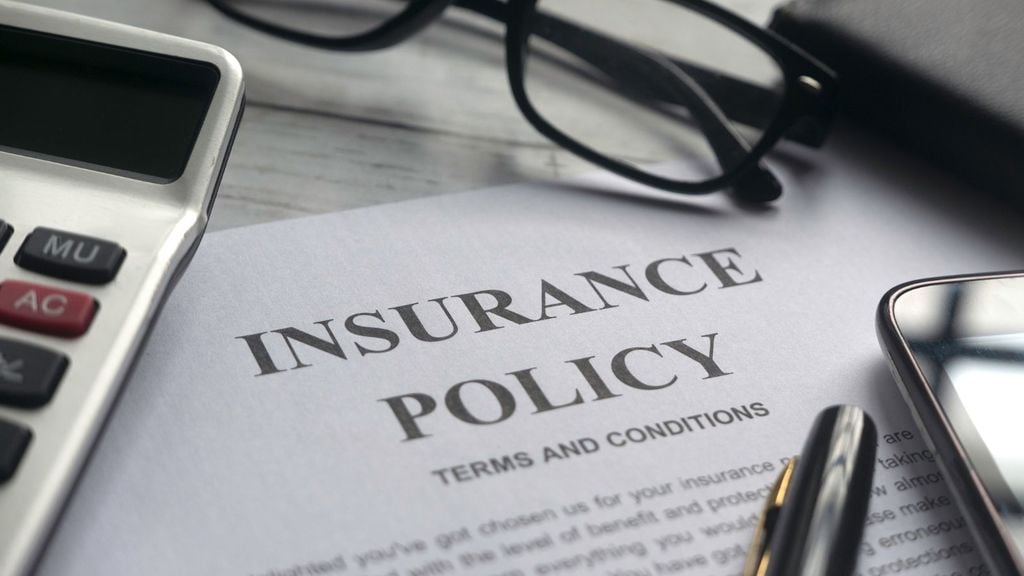Insurance is a crucial aspect of managing risks for real estate agents. With the potential for various liabilities, having the right insurance coverage ensures that real estate professionals can focus on their work without worrying about unexpected financial setbacks.
This guide will cover the essential types of insurance for real estate agents, their importance, and how to choose the right policies.
Whether you’re a seasoned agent or new to the industry, understanding your insurance needs is vital for protecting your business and maintaining peace of mind.
What Types of Insurance Do Real Estate Agents Need?
General Liability Insurance
General Liability Insurance provides coverage for third-party claims of bodily injury, property damage, and personal injury (like libel and slander). This type of insurance is essential for real estate agents because it protects against common risks that can occur during daily operations.
For example, if a client trips and falls while visiting your office, general liability insurance would cover their medical expenses and any legal fees if they decide to sue.
Additionally, if you accidentally damage a client’s property during a showing, this insurance would cover the repair costs.
Professional Liability Insurance (Errors & Omissions – E&O)
Professional Liability Insurance (also known as Errors & Omissions (E&O) insurance) is critical for real estate agents. This coverage protects against claims of negligence, errors, or omissions in your professional services.
Even if you haven’t made a mistake, clients can still sue for perceived negligence. If a client discovers undisclosed issues with a property after purchase, they might file a lawsuit claiming you failed to inform them.

E&O insurance would cover legal defense costs, settlements, and any judgments against you. This type of insurance is mandatory in several states, making it a fundamental part of a real estate agent’s insurance portfolio.
Commercial Property Insurance
Commercial Property Insurance protects the physical assets of your business including office space, equipment, and furniture. This insurance is vital for real estate agencies that own or lease office space.
Commercial Property Insurance provides coverage for damages caused by events like fire, theft, or vandalism.
When a fire damages your office, commercial property insurance would cover the repair costs and the replacement of damaged equipment. Ensuring your office is adequately protected allows you to continue operations with minimal disruption.
Workers’ Compensation Insurance
Workers’ Compensation Insurance provides medical and wage benefits to employees who get injured or fall ill due to work-related activities. This type of insurance is often legally required for businesses with employees.
It helps cover medical expenses and lost wages, protecting both the employer and the employee.
For real estate agencies, workers’ compensation insurance ensures that your team is taken care of in case of workplace injuries. This promotes a safer and more supportive working environment.
Commercial Auto Insurance
Commercial Auto Insurance covers vehicles used for business purposes including liability for accidents and damage to the vehicles. Real estate agents often drive to various properties, making this insurance essential.
Personal auto insurance may not cover business-related incidents so having commercial auto insurance ensures that you are protected while driving for work.

For instance, if you get into an accident while driving to a property showing, this insurance would cover the damages and any medical costs for injuries sustained.
By understanding and securing these essential types of insurance, real estate agents can protect themselves from significant financial risks and focus on building successful careers in the industry.
How Much Does Real Estate Insurance Cost?
The cost of real estate agent insurance can vary widely based on several factors, including the size of your business, location, number of employees, and claims history. Understanding these factors can help you estimate your expenses and budget accordingly.
- General Liability Insurance: On average, most real estate agents can expect to pay between $21 and $28 per month for general liability insurance. In some cases, it can be as much as $73 per month or more. This insurance covers third-party claims of bodily injury, property damage, and personal injury, offering essential protection against common business risks.
- Professional Liability Insurance (Errors & Omissions – E&O): This insurance is typically more expensive, ranging from $32 to $54 per month. The cost depends on the coverage limits and the specifics of your business operations. E&O insurance is crucial for protecting against claims of negligence, errors, or omissions in your professional services.
- Commercial Property Insurance: The cost of commercial property insurance generally ranges from $25 to $56 per month depending on the value of the property and the level of coverage required. It can be over $100 if there is a large amount of property to cover. This insurance covers damage to your office space and business equipment caused by events like fire, theft, and vandalism.
- Workers’ Compensation Insurance: For businesses with employees, workers’ compensation insurance costs can vary based on the number of employees and the nature of their work. Premiums typically range from $0.75 to $2.74 per $100 of payroll, reflecting the risk level of the job roles.
- Commercial Auto Insurance: The cost for commercial auto insurance depends on the number of vehicles, their use, and driving records. On average, premiums range from $600 to $2400 per year for a standard car that is used for business purposes.
These figures provide a general idea but actual costs can differ based on your specific circumstances. Getting quotes from multiple insurers can help you find the best coverage at a competitive price.
Why Real Estate Agents Need Insurance
Real estate agents face numerous risks in their line of work, making insurance a vital component of their professional toolkit.
Here’s why having the right insurance coverage is essential:
- Financial Protection: Real estate transactions involve significant sums of money, and any mistake or oversight can lead to costly lawsuits. Insurance provides a safety net, covering legal fees, settlements, and judgments that could otherwise devastate your finances.
- Enhanced Credibility: Clients are more likely to trust and work with agents who have comprehensive insurance coverage. It demonstrates professionalism and a commitment to operating responsibly, reassuring clients that they are in good hands.
- Legal Requirements: In many states, certain types of insurance (such as E&O and workers’ compensation) are legally required for real estate agents. Complying with these regulations is crucial to avoid penalties and ensure your business operates within the law.
- Risk Management: Real estate agents deal with various risks daily, from property damage during showings to client injuries at the office. Insurance helps manage these risks, allowing you to focus on serving your clients and growing your business without constant worry about potential liabilities.
- Peace of Mind: Knowing you are protected against unexpected financial losses provides peace of mind. You can operate with confidence, knowing that you have a safety net in place if things go wrong.
Investing in the right insurance policies is a smart move for any real estate agent. It protects your business and enhances your reputation while ensuring compliance with legal requirements.

For personalized advice and to explore your options, consider consulting with insurance professionals who specialize in real estate coverage.
By securing the necessary insurance, you safeguard your career, finances, and reputation, allowing you to thrive in the competitive real estate market.
How to Choose the Right Insurance Provider
Selecting the right insurance provider is important for ensuring that you receive comprehensive coverage and excellent service. Here are steps to help you make an informed decision:
1. Identify Your Needs
Assess the specific risks associated with your real estate business. Determine what types of insurance you need, such as general liability, E&O, and commercial auto insurance.
2. Research Providers
Look for insurance companies that specialize in real estate insurance. Providers with industry-specific expertise are more likely to offer policies tailored to your needs.
Check reviews and ratings from other real estate professionals. Websites like Trustpilot and the Better Business Bureau can provide insights into an insurer’s reputation.
3. Compare Quotes
Obtain quotes from multiple insurance companies to compare coverage options and prices. Make sure you are comparing similar coverage levels to make an accurate assessment.
Pay attention to deductibles, coverage limits, and any exclusions in the policies.
4. Consult Professionals
Consider working with an insurance broker who specializes in real estate. Brokers can provide personalized advice and help you navigate the complexities of different insurance policies.
Seek recommendations from colleagues or industry associations for trusted insurance providers.
5. Evaluate Customer Service
Test the responsiveness and helpfulness of the insurer’s customer service team. Good customer service is crucial, especially when you need to file a claim or ask questions about your policy.
6. Review Policy Details
Carefully read through the policy documents to understand what is covered and what is not. Ensure that the coverage meets your specific needs and provides adequate protection.
Common Claims Filed by Real Estate Agents
Real estate agents face various risks that can lead to insurance claims. Here are some common types of claims:
Misrepresentation or Errors
Clients may file claims if they believe you provided inaccurate or incomplete information about a property. E&O insurance covers legal fees and settlements in such cases.
Property Damage
Accidents can happen during property showings. For instance, you might accidentally damage a client’s furniture. General liability insurance covers the costs of such damages.

Bodily Injury
If a client slips and falls in your office or at a property showing, they might file a claim for medical expenses. General liability insurance covers these injury-related claims.
Discrimination or Fair Housing Violations
Clients might allege discrimination or violations of fair housing laws. E&O insurance can help cover legal costs associated with defending against these claims.
Auto Accidents
Real estate agents often drive to various properties. If you are involved in an accident while conducting business, commercial auto insurance covers the damages and medical costs.
Tips for Managing Insurance Costs
Insurance is a necessary expense, but there are ways to manage and potentially reduce costs:
Bundle Policies
Many insurers offer discounts if you purchase multiple policies from them, such as bundling general liability and professional liability insurance.
Increase Deductibles
Choosing a higher deductible can lower your premium. Ensure that you can afford the deductible in case you need to file a claim.
Maintain a Good Claims History
Avoid filing small claims that you can cover out-of-pocket. A good claims history can help keep your premiums lower.
Review and Update Coverage Regularly
Periodically review your insurance needs and adjust your coverage accordingly. Ensure you are not paying for coverage you no longer need.
Implement Risk Management Practices
Take steps to reduce risks, such as conducting regular safety inspections of your office and vehicles. Training employees on best practices can also help prevent accidents and claims.
Shop Around
Don’t stick with the same insurer out of habit. Regularly compare quotes from different providers to ensure you are getting the best rates for the coverage you need.
By following these strategies, you can effectively manage your real estate insurance costs while ensuring your real estate business remains well-protected.
Protect Your Real Estate Business with the Right Insurance
Securing the right insurance is essential for protecting your real estate business from unexpected financial losses and legal issues. By understanding the various types of insurance available, you can tailor your coverage to meet the specific needs of your business.
For personalized advice and to explore the best insurance options for your business, our top-rated real estate team is here for you. We provide support, training, mentorship, and more to the agents on our team. Get in touch with the SPACE today to learn more about how we can help you.



